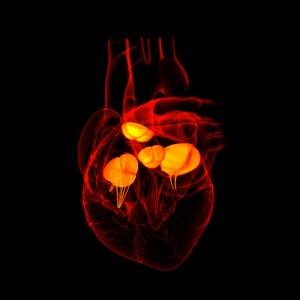Pulmonary Arterial Hypertension Patients With Congenital Heart Disease Experience Poor Quality of Life Scores

 A team of scientists recently reported that patients with both pulmonary arterial hypertension and congenital heart disease (PAH-CHD) exhibit Quality of Life (QoL) scores significantly lower when compared to patients with stable PAH. The data were presented at the European Respiratory Society (ERS) Annual Congress.
A team of scientists recently reported that patients with both pulmonary arterial hypertension and congenital heart disease (PAH-CHD) exhibit Quality of Life (QoL) scores significantly lower when compared to patients with stable PAH. The data were presented at the European Respiratory Society (ERS) Annual Congress.
For this study, the team analyzed 200 PAH-CHD patients across 14 centers in France and measured scores of different standardized health surveys, such as SF-36 (Health Survey Short Form 36), CAMPHOR (CAMbridge Pulmonary Hypertension Outcome Review), and HADS (Hospital Anxiety and Depression Scale).
[adrotate group=”4″]
Pascal Amedro, MD, from Hopital Arnaud de Villeneuve, Montpellier, France and author of this study, noted, “Multivariate analysis showed New York Heart Association [NYHA] functional class associated with all components of the SF-36 [Health Survey Short Form 36] and CAMPHOR [CAMbridge Pulmonary Hypertension Outcome Review] scales, six-minute walk distance associated with all SF-36 components, and with the symptom and functioning components of CAMPHOR. Recent stressful events, including more than one hospitalization within the past year [was] associated with worse SF-36 score.”
Across all surveys, the PAH-CHO patient population scored low values across all domains analyzed. In general, female patients exhibited even lower values when compared to males. When standardizing for heart disease (via the New York Heart Association, NYHA), the results showed QoL scores are dependent on NYHA class, with worsened scores being associated with NYHA dangerous classes.
[adrotate group=”3″]
As QoL scores of these patients gradually decrease with disease severity, the authors find QoL measuring scores should be included on a routine basis to keep track of patients’ health. As Dr. Amedro noted, “PAH-CHD patients are prone to anxiety and depression that should be screened for, since support and/or treatment may be beneficial in their treatment.”







